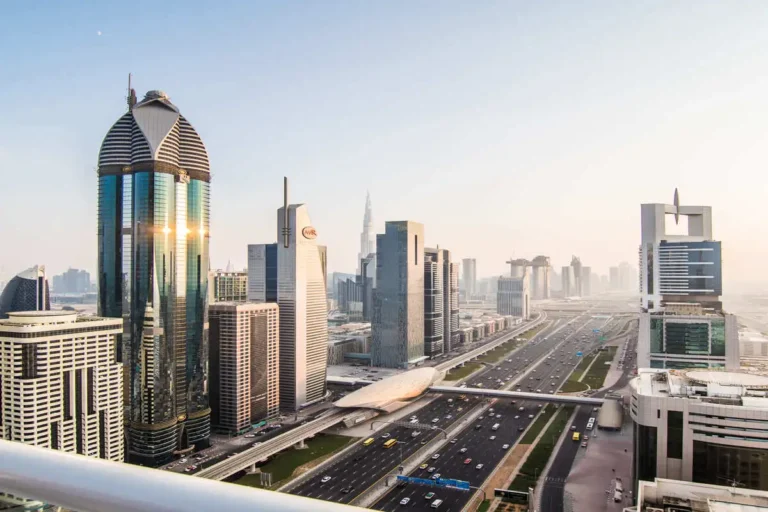November 15th, 2025 | Dubai, UAE: All students are aware of the fact that exams can be stressful. However, some exams extend well beyond the normal, being the toughest exams in the world, require years of practice, are accompanied by huge social pressure, and the results of which determine careers and life decisions. These kinds of tests or toughest exams in the world are not only similar to the hard questions, but they have been characterized by extreme competition and high stakes.
When attempting to list some of the toughest exams in the world, there is the inevitable question of the physical, mental, and social strain the exams are created with, as opposed to the notion of the questions being tough.
The toughest exams in the world include:
- Huge amounts of applicants and few seats,
- A power in decision that can make someone alter the course of their life,
- Much content or endurance is necessitated,
- A strong eradication nature (lots of them fail).
Best examples of the toughest exams in the world.
These are some of the most difficult profiled tests, which are very different but quite similar in their requirements.
1. Gaokao (China)
Gaokao is a national higher-education entrance test in China, and is often said to be one of the toughest exams in the world. Young people traditionally take it at the culmination of their secondary schooling, at the age of 18 (third year in high school). It takes approximately 10 hours in two days with very intricate questions.
The test has millions of people enrolling every year (According to the report, there are more than 9.75 million people registered every year). The ratio of selection is very minimal: in some provinces, the ratio given is 1:150, with some of the highest scores. Due to the fact that university placement in China strongly relies on this examination, the stakes are huge, and one can either win or lose significant parts of their life, making it one of the toughest exams in the world.

2. Suneung / CSAT (South Korea)
College Scholastic Ability Test (CSAT), also referred to as the national higher-education entrance exam locally as Suneung, is a test in South Korea. It is an exam that is grueling, eight hours (or more), making it one of the toughest exams in the world.
The day of the exam turns into a national holiday: the flights are postponed, the banks are open late, and lots of roads are cleared so that the students can be on time. There is a high price involved, as not only is educational high performance perceived to enhance social status, career, and even marriage prospects.

3. Joint Entrance Examination (JEE) (India).
In India, the JEE is a point of entry to elite engineering schools, the Indian Institutions of Technology in particular. The exam is held in two successive steps, JEE Mains and JEE Advanced said to be one of the toughest exams in the world. Out of hundreds of thousands who take the exam, a small percentage pass the test. In one year, it’s about only a 1 in 45 success rate. The curriculum is strenuous as profundity in Physics, Chemistry, and Mathematics; agility, fidelity, and stamina are important.

4. Professional and Certification Exams.
Times of Dubai points out that numerous professional or certification exams are considered by many to be some of the toughest exams in the world:
- Exam of Chartered Accountant (CA) (India): The pass rate is very low. Widely, the exam is demonstrated to span many levels, years of study.
- Chartered Financial Analyst (CFA) Exam (Global): Three levels, difficult to prepare, difficult to pass exams.
- Cisco Certified Internetworking Expert (CCIE) (IT Certification): Lab and written exam, expensive to take, considered one of the most challenging in the technology industry.
- California Bar Exam (USA): Multiday test, traditionally low passing rates, typically about 60 per cent in a given year.

Similarities between the toughest exams in the world.
Based on the above, some common factors are realized:
- High rate of scale, low rate of reward: There are many aspirants, and few seats or slots on certifications.
- Life-altering impacts: One of the biggest exam results helps to get admission to a good university or get accepted to a prestigious job.
- Emotional and social pressure is high: The families the societies tend to have a lot of expectations on the result.
- Very competitive and discriminatory: The few candidates that make it through.
- Broad/complex content and endurance: The content of the syllabus is broad; the duration of the test is long; speed and accuracy are important.
The influence of national culture and policy occurs, e.g., on exam day in Korea, everybody in Suneung slows down; in China, whole provinces are oriented on the exam.
The human aspect and implications at large
These exams have nothing to do with memorising facts and answering questions only; it is rather a matter of psychological resilience, time management, stamina, and social pressure. The exam, to the young people, is the highlight of their teenage life: what grade, what institute, and what future they are capable of creating. Families can invest a lot of money in tuition and coaching, and students can lose a lot of pleasure, sleep, and even social life.
In addition, there is a wider social implication:
- In China, being unsuccessful in Gaokao can result in a missed opportunity to attend the universities or career paths of choice.
- In South Korea, the ritual of Suneung has become a national holiday with infrastructure and systems put in place to assist students on that day.
- Examinations such as JEE define whole coaching businesses, student migration in the country, and the everyday routine of applicants in India.
The following dynamics raise the question: Are high-stakes exams that involve a lot of stakes the most appropriate means of talent measurement? What effects do they have on mental health, opportunity equity, and geographical disparities, resource access (coaching vs non-coaching)? The price for these exams, such as emotional, social, and financial strain, is considerable and possibly not well taken into account.
The toughest exams in the world
To find out what constitutes the toughest exams in the world, there is no single answer; it will depend on the country, system, stakes, and circumstances. But the exams that the article has featured in point to all have one fundamental thrust: the presence of enormous pressure, of high competition, and life-altering consequences.
Besides the tricky questions, whether the Gaokao, the Suneung, the India JEE, or the international professional certification exams, the upcoming applicants are not only confronted with tough questions, but with time, passion, and desire. To students who are going through such high-stakes tests, the only way they can succeed is not only by knowledge but by mindset, sources of support, resilience, and perseverance.
Read: 10 Best Underrated Restaurants in Dubai Deliver Amazing Food Beyond the Hype














